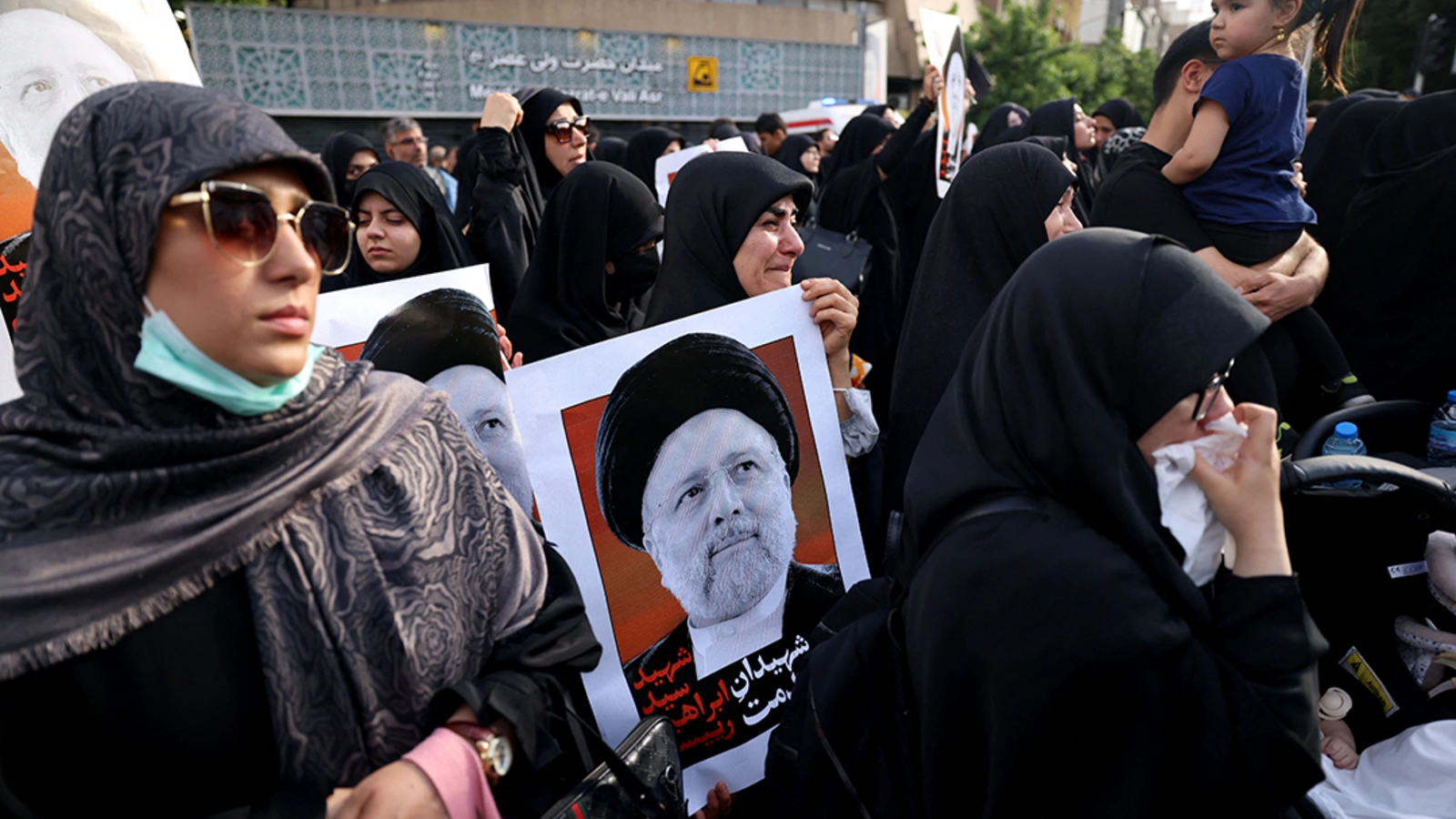President’s Death in Crash Unlikely to Affect Iranian Policies

Ebrahim Raisi was more loyal to hard-line Supreme Leader Ali Khamenei than previous presidents, and whoever succeeds him is likely to be just as conservative.
May 20, 2024 1:13 pm (EST)

- Expert Brief
- CFR scholars provide expert analysis and commentary on international issues.
What does President Ebrahim Raisi’s death in a helicopter crash mean for Iran’s leadership?
Iranian presidents carry out important administrative functions, including managing government bureaucracy. They also have the power to lead initiatives, such as the domestic reform project of Mohammad Khatami, who served from 1997 to 2005, and the arms control diplomacy of Raisi’s predecessor Hassan Rouhani, whose government negotiated the nuclear deal that temporarily froze Iran’s uranium enrichment program in exchange for sanctions relief. The president also chairs the Supreme National Security Council, which makes decisions about the country’s nuclear program. The regime continues to say the program is for civilian purposes only, but some experts have raised concerns that it is approaching military capability.
Yet, the president’s power is still circumscribed by the authority of the supreme leader, who oversees all national affairs. Historically, Supreme Leader Ali Khamenei has had tense relationships with presidents given the push-and-pull of this institutional arrangement. But Raisi was probably Khamenei’s favorite president. He was deferential and rarely said anything of interest. He did not embark on any initiative of import in his less than three years in office and leaves behind a legacy best known for what he did before the presidency—as the ultimate henchman of the Islamic Republic’s judicial system.
Did Raisi have any power over foreign policy or the activities of Iran’s proxy network, the “axis of resistance”?
More on:
Raisi did not have much say on matters of international affairs. He accepted the country’s decision-making apparatus as it was constructed—for instance, in which a number of security-related matters devolved to the Supreme Leader—and rarely challenged the parameters of Iran’s foreign policy. There was little reason to have done so, given the success of the proxy warfare that allows Iran to project power with a measure of impunity. The axis of resistance network, for example, is managed directly by the Islamic Revolutionary Guard Corps, a paramilitary force that reports to the supreme leader. In April, as the axis worked to support Palestinian militant group Hamas in its ongoing conflict with Israel, the Islamic Republic launched a direct attack on Israeli territory for the first time. Afterward, Raisi repeated the Supreme Leader’s talking points that the attack was justified on the grounds that Israel attacked an Iranian compound in Syria. Raisi’s death has shown no indication of foul play by Israel or any other actor.
What is the presidential succession process in Iran?
The government has fifty days to conduct an election, and the jockeying will begin after a brief period of mourning. In the meantime, sixty-eight-year-old Mohammad Mokhber, Iran’s first vice president, has been named interim president. The next president, to be chosen in general elections that will again be tightly controlled by authorities, is likely to be just as conservative as Raisi, but younger.
The last time the country had to conduct a presidential election due to an untimely death was in 1981, when Khamenei himself was elected after his predecessor Mohammad-Ali Rajai was killed in a terrorist bombing. Khamenei served as president until 1989, when he was selected as supreme leader.
How will Raisi be remembered?
Raisi’s primary legacy is that of a loyal servant of a repressive system. He spent most of his career in the judicial branch and had little compunction about ordering death sentences for political dissidents. His most notorious role was as one of three judges in the so-called death commission that in 1988 sentenced more than five thousand dissidents to death in short order. As president, he was submissive to Khamenei and followed his direction with diligence and discipline. This included a harsh crackdown on the sustained protests triggered by the 2022 death of Mahsa Amini after she was apprehended by morality police.
At the time of his death, sixty-three-year-old Raisi was considered a possible successor to Khamenei, who is eighty-five and reported to be in ill health. On the surface, Raisi lacked the skill and imagination needed for such a post, but in a political order that has been so thoroughly purged of dissent, he could have risen to the top.
More on:
 Online Store
Online Store
